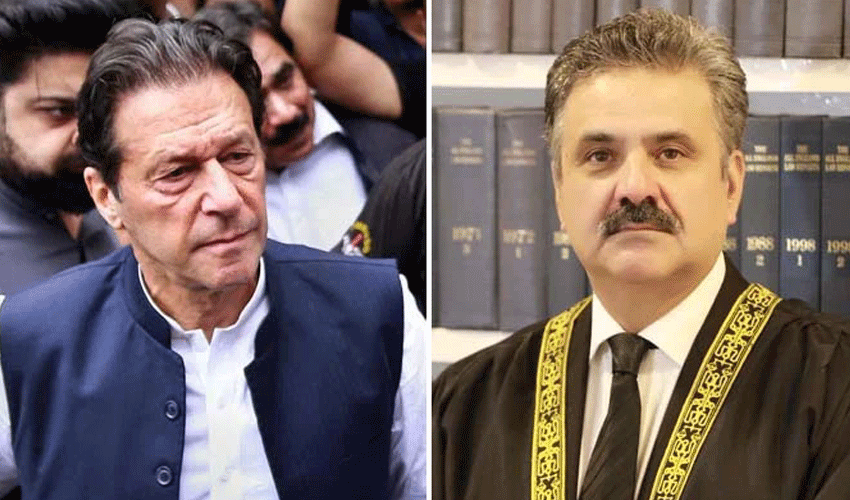Chief Justice of Pakistan Justice Yahya Afridi on Wednesday advised state prosecutors to avoid referring to Pakistan Tehreek-e-Insaf (PTI) founder Imran Khan by political titles during court proceedings, suggesting instead to use neutral terms such as “the accused.”
The remarks came during a Supreme Court hearing on appeals related to the physical remand of the incarcerated PTI founder.
The hearing was presided over by Chief Justice Afridi, who was responding to a request by Special Prosecutor Zulfiqar Naqvi.
Mr Naqvi had urged the court to allow the conduct of photographic, polygraphic and voice matching tests, stating that the "PTI founder was not cooperating in jail."
To this, the chief justice observed that it was inappropriate to refer to the accused by political designation and remarked: "Say the accused is not cooperating, not the founder of PTI."
The proceedings reflected growing judicial caution over politically charged language in sensitive cases. The PTI founder, currently in custody, faces nearly 300 legal cases across various forums.
During the hearing, the PTI founder’s counsel, Advocate Salman Safdar, argued that the matter of remand was no longer relevant, as the case had reached the stage of indictment. He further requested permission to meet his client in jail to receive legal instructions.
"There are nearly 300 cases pending against my client. He must be given adequate time and access to prepare his legal defence," Mr Safdar contended.
In response, Chief Justice Afridi remarked: "This time, your meeting will take place without any formal court order. Let’s see whether it is allowed without an order or not." The court then scheduled the next hearing for April 23 before a three-member bench headed by Justice Hashim Kakar.
Meanwhile, in a related development, the apex court dismissed as “ineffective” the Punjab government’s appeals against the restoration of the PTI founder’s pre-arrest bail in another case. The bench observed that the appeals no longer held legal significance following developments in the trial.
Special Prosecutor Naqvi reiterated that the prosecution would not pursue physical remand but requested approval for conducting identification-related tests within the jail premises. However, Chief Justice Afridi reiterated that no assumptions should be made about the accused’s alleged lack of cooperation without clear legal grounds.



























